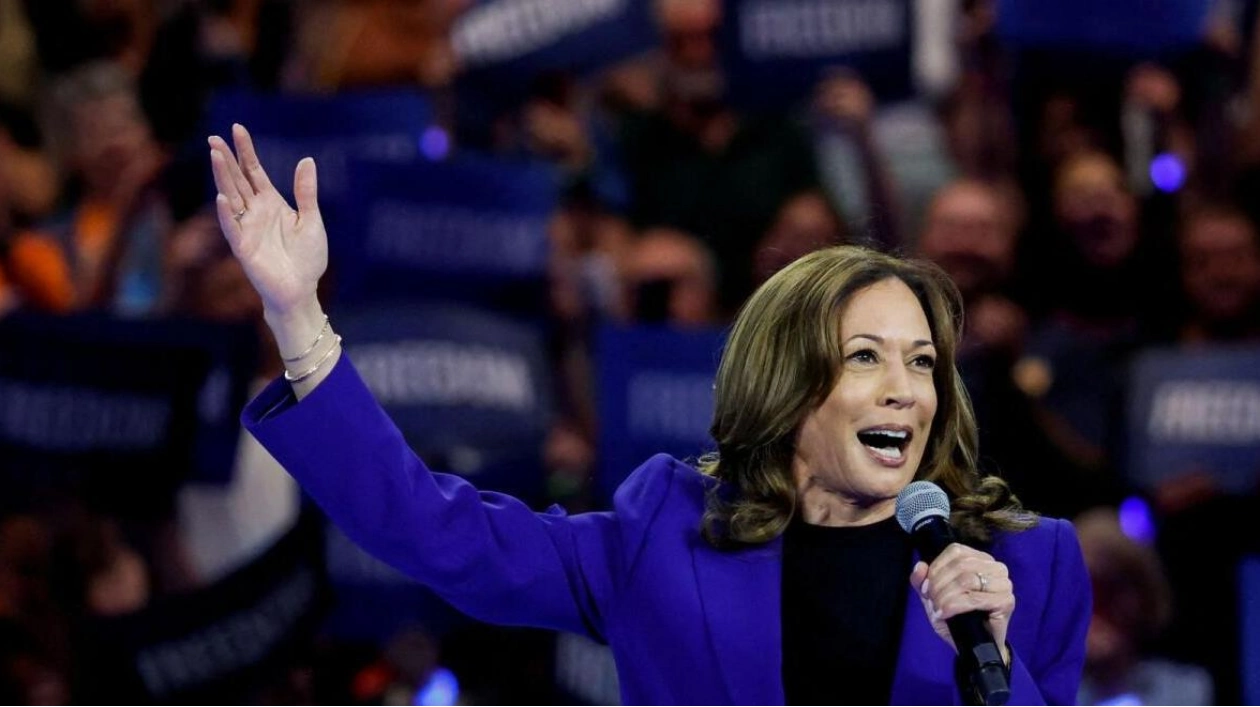Kamala Harris, the daughter of a Jamaican father and an Indian mother, both immigrants, embodies the evolving demographics of the United States. As she accepts the Democratic Party's nomination for president in Chicago on Thursday, she stands as a symbol of the nation's rapidly expanding multiracial population. According to the US Census Bureau, approximately 42 million Americans, or 13 percent of the population, now identify as multiracial, a significant increase from the 2 percent recorded in 2000 when the census first permitted multiple race selections. Despite America's historical claim as a 'melting pot' of global origins, legal racial segregation persisted in some states until the 1960s, and laws against interracial marriage were only repealed in 1967. However, societal shifts have accelerated since then; Barack Obama became the first African American president in 2008, and Harris could potentially become the first Black woman and South Asian president if elected in November.
Svante Myrick, president of People for the American Way, an advocacy group, commented on the significance of this potential milestone, stating, 'We're living in a situation 50 years later where we could be looking at our second mixed-race president, and it's beautiful.' Myrick, whose father is Black and mother is white, underscores the transformative nature of these political developments. The future of America is set to become even more diverse, with the majority of multiracial individuals being under the age of 44, and a third being children. This demographic shift has elicited mixed reactions, including confusion and hostility, particularly from the shrinking white majority in the US. Republican presidential candidate Donald Trump faced criticism for his inaccurate portrayal of Harris' racial identity during a meeting with Black journalists, questioning whether she is Indian or Black.
Harris, who has always embraced her dual heritage, found Trump's comments reflective of the challenges faced by multiracial individuals who are often forced to choose one identity over another. Democrats in Chicago believe that Harris' diverse upbringing equips her to be a more effective leader. Representative Maxwell Frost, who is of Lebanese, Puerto Rican, and Haitian descent, highlighted the value of having a leader with multiple cultural experiences, enhancing her legislative and advocacy capabilities for a diverse American populace. Despite the increasing diversity in the US, white nationalist groups remain active online, promoting conspiracy theories like 'The Great Replacement,' while some Republican lawmakers advocate for the suppression of racial history education. Racial hate crimes continue to be reported in significant numbers, with 232 attacks targeting people of multiple races in 2022, according to the latest FBI data.
Matthew Belmont, a history professor at Dartmouth College, noted the ongoing backlash against demographic changes, despite the election of Harris as vice president and her administration's focus on racial justice. Tara Betrayer, an Afro-Latina and white conservative co-founder of the Seneca Project, expressed concerns about the Republican Party's recent rhetoric on immigration, which she perceives as carrying racist undertones. Despite these challenges, Betrayer remains hopeful, viewing the resistance as a desperate attempt to halt the nation's progressive evolution.






